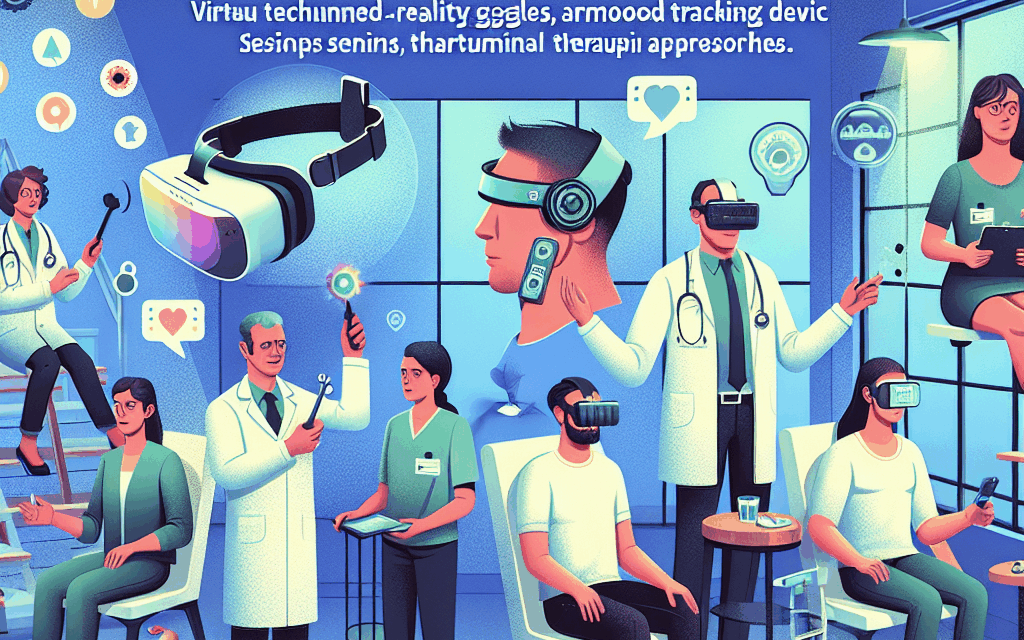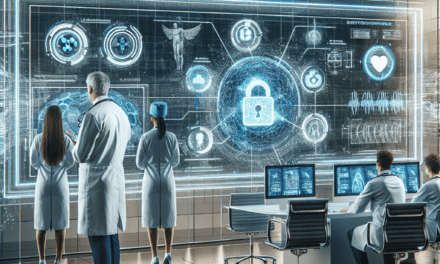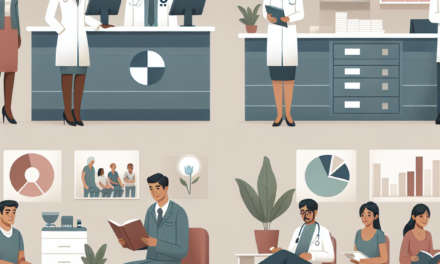Transforming Trauma Recovery: How Technology is Revolutionizing Psychiatry
In recent years, the field of psychiatry has undergone a significant transformation, largely driven by advancements in technology. The integration of digital tools and platforms into mental health care has opened new avenues for trauma recovery, making treatment more accessible, personalized, and effective. This article explores how technology is revolutionizing psychiatry, focusing on five key areas: telepsychiatry, mobile health applications, virtual reality therapy, artificial intelligence in diagnostics and treatment, and online support communities.
Telepsychiatry: Bridging the Gap in Mental Health Care
Telepsychiatry has emerged as a vital tool in expanding access to mental health services, particularly for individuals living in remote or underserved areas. By leveraging video conferencing technology, mental health professionals can provide therapy and consultations to patients regardless of their geographical location.
One of the most significant advantages of telepsychiatry is its ability to reduce barriers to care. Many individuals facing mental health challenges may feel stigmatized or uncomfortable seeking help in person. Telepsychiatry allows them to receive treatment in the comfort of their own homes, which can lead to increased engagement and adherence to treatment plans.
Research supports the efficacy of telepsychiatry. A study published in the American Journal of Psychiatry found that patients receiving telepsychiatry services reported similar outcomes to those receiving in-person care. Furthermore, a meta-analysis indicated that telepsychiatry is particularly effective for treating anxiety and depression, two common conditions associated with trauma.
- Accessibility: Telepsychiatry eliminates geographical barriers, making it easier for individuals in rural areas to access mental health services.
- Convenience: Patients can schedule appointments that fit their lifestyles, reducing the likelihood of missed sessions.
- Cost-Effectiveness: Telepsychiatry can lower costs associated with travel and time off work, making mental health care more affordable.
Despite its benefits, telepsychiatry is not without challenges. Issues such as technology literacy, internet access, and privacy concerns can hinder its effectiveness. However, ongoing efforts to improve digital literacy and secure patient data are helping to address these challenges.
Mobile Health Applications: Empowering Patients on Their Recovery Journey
The proliferation of smartphones has led to the development of numerous mobile health applications designed to support mental health and trauma recovery. These apps offer a range of features, from mood tracking and mindfulness exercises to guided therapy sessions and educational resources.
One notable example is the app Headspace, which provides users with guided meditation and mindfulness practices. Research has shown that mindfulness can significantly reduce symptoms of anxiety and depression, making such apps valuable tools for trauma recovery. A study published in the journal Psychological Science found that participants who used mindfulness apps reported lower levels of stress and improved emotional regulation.
Mobile health applications also facilitate self-monitoring, allowing users to track their moods, triggers, and coping strategies. This data can be invaluable for both patients and their therapists, providing insights into patterns and progress over time. For instance, the app Woebot uses artificial intelligence to engage users in conversations about their mental health, offering personalized feedback and coping strategies based on their input.
- Self-Management: Apps empower users to take an active role in their recovery by providing tools for self-monitoring and coping.
- Accessibility: Many mental health apps are free or low-cost, making them accessible to a broader audience.
- Customization: Users can tailor their experience based on their specific needs and preferences, enhancing engagement.
However, the effectiveness of mobile health applications can vary widely. While some users may find them beneficial, others may struggle with motivation or find the technology overwhelming. It is essential for mental health professionals to guide patients in selecting appropriate apps and integrating them into their treatment plans.
Virtual Reality Therapy: Immersive Experiences for Healing
Virtual reality (VR) therapy is an innovative approach that uses immersive technology to help individuals confront and process traumatic experiences. By creating controlled environments, VR therapy allows patients to engage with their fears in a safe and supportive setting.
One of the most well-researched applications of VR therapy is in the treatment of post-traumatic stress disorder (PTSD). A study conducted by the Journal of Traumatic Stress found that veterans with PTSD who participated in VR exposure therapy experienced significant reductions in symptoms compared to those who received traditional therapy alone. The immersive nature of VR helps patients confront their trauma in a way that feels real but is still manageable.
VR therapy can also be tailored to individual needs. For example, a patient with a fear of flying can be gradually exposed to virtual flight scenarios, allowing them to practice coping strategies in a controlled environment. This gradual exposure can lead to desensitization and improved emotional regulation.
- Controlled Exposure: VR allows for gradual exposure to traumatic stimuli, helping patients confront their fears safely.
- Engagement: The immersive nature of VR can enhance patient engagement and motivation during therapy sessions.
- Customizability: Therapists can tailor VR experiences to meet the specific needs and triggers of each patient.
Despite its promise, VR therapy is still in its early stages, and challenges such as cost, accessibility, and the need for specialized training for therapists remain. However, as technology advances and becomes more affordable, VR therapy has the potential to become a mainstream treatment option for trauma recovery.
Artificial Intelligence in Diagnostics and Treatment
Artificial intelligence (AI) is transforming the field of psychiatry by enhancing diagnostic accuracy and personalizing treatment plans. AI algorithms can analyze vast amounts of data, identifying patterns and predicting outcomes that may not be apparent to human clinicians.
One of the most significant applications of AI in psychiatry is in the early detection of mental health disorders. For instance, researchers at Stanford University developed an AI algorithm that can analyze speech patterns to identify signs of depression. By examining vocal tone, pitch, and speech rate, the algorithm can provide insights into a patient’s mental state, potentially leading to earlier intervention.
AI is also being used to personalize treatment plans. Machine learning algorithms can analyze patient data, including genetic information, treatment history, and response to previous therapies, to recommend tailored interventions. This approach is particularly valuable in treating complex conditions such as PTSD, where individual responses to treatment can vary widely.
- Enhanced Diagnostics: AI can improve diagnostic accuracy by analyzing data patterns that may be overlooked by clinicians.
- Personalized Treatment: Machine learning algorithms can recommend tailored interventions based on individual patient data.
- Predictive Analytics: AI can help predict treatment outcomes, allowing clinicians to make informed decisions about care.
While the potential of AI in psychiatry is immense, ethical considerations must be addressed. Issues such as data privacy, algorithmic bias, and the need for human oversight are critical to ensuring that AI enhances rather than undermines patient care. Ongoing research and dialogue in the field will be essential to navigate these challenges.
Online Support Communities: Fostering Connection and Understanding
Online support communities have become a vital resource for individuals recovering from trauma. These platforms provide a space for individuals to share their experiences, seek advice, and connect with others who understand their struggles. The anonymity of online forums can encourage open dialogue and reduce feelings of isolation.
One prominent example is the online platform 7 Cups, which offers free emotional support through trained listeners and peer support groups. Research has shown that participation in online support communities can lead to improved mental health outcomes, including reduced symptoms of anxiety and depression. A study published in the journal Cyberpsychology, Behavior, and Social Networking found that individuals who engaged in online support groups reported increased feelings of social support and decreased feelings of loneliness.
Online communities also provide access to a wealth of resources, including educational materials, coping strategies, and expert advice. For individuals who may not have access to traditional therapy or support groups, these platforms can be a lifeline.
- Peer Support: Online communities foster connections between individuals with shared experiences, providing emotional support and understanding.
- Anonymity: The ability to remain anonymous can encourage individuals to share their experiences and seek help without fear of judgment.
- Resource Sharing: Online platforms often provide access to valuable resources, including articles, videos, and coping strategies.
However, online support communities are not without their challenges. Misinformation, lack of moderation, and the potential for negative interactions can pose risks. It is essential for individuals to approach online communities with caution and seek guidance from qualified professionals when necessary.
Conclusion: The Future of Trauma Recovery in Psychiatry
The integration of technology into psychiatry is revolutionizing trauma recovery, offering new tools and approaches that enhance accessibility, engagement, and effectiveness. Telepsychiatry, mobile health applications, virtual reality therapy, artificial intelligence, and online support communities are just a few examples of how technology is reshaping the landscape of mental health care.
As we move forward, it is crucial to continue exploring the potential of these technologies while addressing the ethical and practical challenges they present. By fostering collaboration between mental health professionals, technologists, and patients, we can create a future where trauma recovery is more accessible, personalized, and effective than ever before.
In summary, the transformation of trauma recovery through technology is not just a trend; it represents a fundamental shift in how we approach mental health care. By embracing these innovations, we can empower individuals on their journey to healing and resilience.





